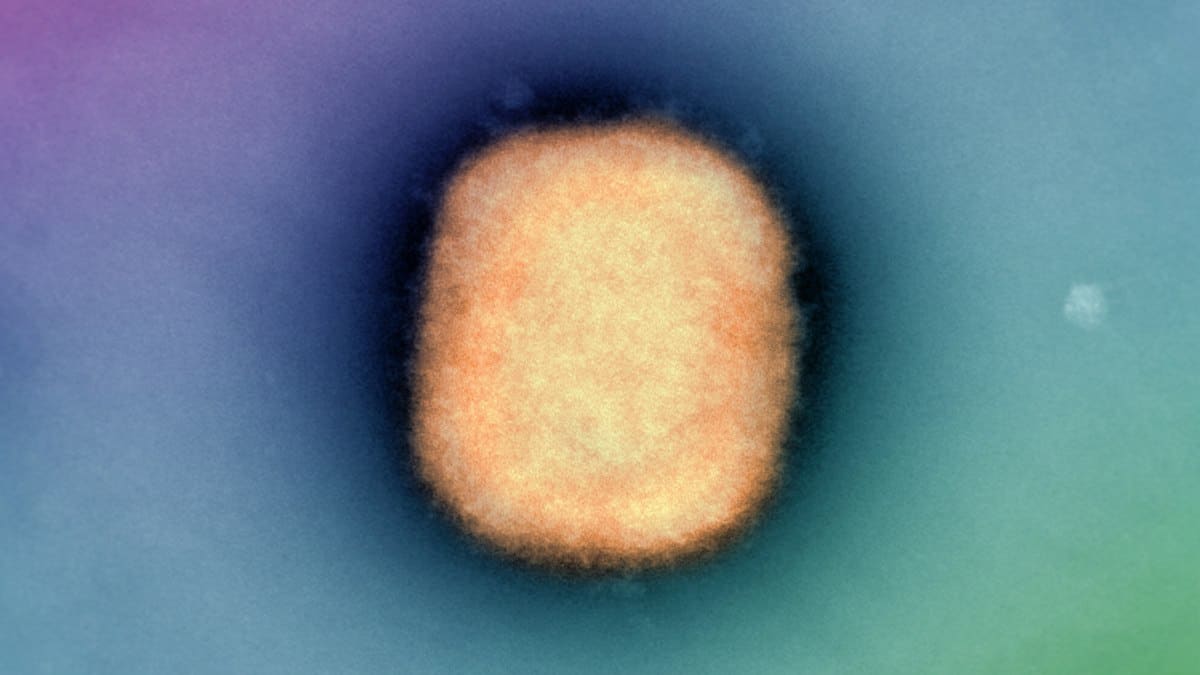The Monkeypox virus circulating around the world is mutating in a way that allows it to evade human immunity.
Virologists at the University of Missouri (US) analysing 200 strains of the Monkeypox virus circulating since 1965 found mutations that allow it to avoid natural and vaccine-induced antibodies.
Some of those mutations have occurred in regions of the virus that medications and vaccines are designed to target. This has blunted the effectiveness of therapies and made it easy for people to be infected.
Senior author of the paper published in Journal of Autoimmunity Kamlendra Singh says the research team was able to identify monkeypox’s mutations by using three-dimensional modelling of the virus proteins. Doing so allowed them to identify the location and function of individual mutations.
“Monkeypox is a huge virus with approximately 200,000 DNA bases in the genome,” Singh says.
Size doesn’t necessarily matter when it comes to the virality or lethality of a virus: monkeypox virus genomes are roughly seven times bigger than the COVID-19 genome, and 20 times that of HIV, the virus that causes AIDS.
But this lengthier genetic code does provide more opportunities for mutations to occur. Beneficial mutations can enhance the virus’s potency and ability to resist or dodge immunity.
“The DNA genome for monkeypox is converted into nearly 200 proteins, so it comes with all the ‘armour’ it needs to replicate, divide and continue to infect others,” Singh says.
“Viruses will make billions of copies of itself and only the fittest will survive, as the mutations help them adapt and continue to spread.”
A pox on the run
Monkeypox outbreaks have been limited to West Africa previously, but the current spread has been global, with more than 100 countries reporting cases for the first time.
Australia has had 141 cases of monkeypox, mostly from overseas travellers. But with only around 80,000 people infected with the virus globally, its footprint pales in comparison to other more prolific circulating viruses, like SARS-CoV-2 and seasonal flu.
Still, the disease is considered a communicable disease of national significance in Australia, and a vaccine program has been implemented.
Unlike the national SARS-CoV-2 rollout, the monkeypox vaccine (MPXV) is recommended to specific groups, including gay, bisexual and other men who have sex with men, who have been disproportionately affected by the global outbreak.
Men from these groups and others are recommended by the Australian Technical Advisory Group on Immunisation (ATAGI) to receive the JYNNEOS vaccine. This uses an attenuated (weakened) version of the vaccinia virus – a poxvirus – which after two doses administered a month apart allows the recipient’s body to produce lifelong antibody resistance to monkeypox and smallpox.
Read more: Attenuated vaccines are also used to provide immunity against polio.
Monkey off its back: How MPX shakes off immunity.
JYNNEOS provides an effective rate of protection against monkeypox. Among vaccinated people, 80% fewer will contract monkeypox, compared to the same number of those without the vaccine.
But while the vaccine can safeguard against infection, the monkeypox virus – like all viruses – has its own arsenal of weapons.
Research by Singh’s team shows that monkeypox’s mutation help change parts of the viral structure targeted by antibodies and antiviral drugs.
“The mutations were occurring at critical points impacting DNA genome binding, as well as where drugs and vaccine-induced antibodies are supposed to bind,” Singh says.
“These factors are surely contributing to the virus’ increased infectivity.”
In the US, antivirals used to treat monkeypox are the same as those used to treat HIV and herpes. Understanding where viral changes occur can help develop specific therapies that are more effective at capturing dangerous pathogens, rather than using broad spectrum treatments across a range of viral threats.
Read science facts, not fiction…
There’s never been a more important time to explain the facts, cherish evidence-based knowledge and to showcase the latest scientific, technological and engineering breakthroughs. Cosmos is published by The Royal Institution of Australia, a charity dedicated to connecting people with the world of science. Financial contributions, however big or small, help us provide access to trusted science information at a time when the world needs it most. Please support us by making a donation or purchasing a subscription today.







